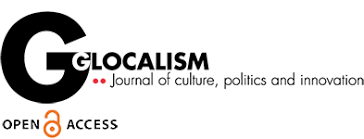Glocalization and Everyday Life
Publication date: Dec 2020
Deadline: Wed, 30 Sep 2020
Contact: davide.cadeddu@unimi.it


Why are some foreign foods more easily found in one local culinary culture than another? How is it possible that a generalized sensitivity for the environment is being introduced in various religious cultures? What factors or assumptions (implicit or explicit) make something like the spread of the phenomenon of legal hybridization possible? What are the ever-changing features that allow for the adaptation of specific television formats to national viewers?
In addition to their obvious banality, these examples indicate one of the most significant dimensions of glocalization as a place of the interaction for processes, objects, practices and discourses through which the local is continuously perceived, represented and modified within everyday life.
In this issue of “Glocalism”, we will focus on the factors that feed this daily production of the local in order to understand what (in an alternative way and depending on various circumstances) facilitates, hinders, makes possible or prevents the forms of glocalization in the various spheres of social life.
In particular, it may be interesting to reflect on these aspects using a multidisciplinary and interdisciplinary perspective in order to underline and analyze the psychological, symbolic and political dimensions of the glocalization process from different angles.
Through a deep analysis of these complex and subtle dynamics it may also be possible to give more substance to the idea that glocalization – instead of being something impalpable – often regards very common and concrete aspects in our everyday life.
“Glocalism”, a peer-reviewed, open-access and cross-disciplinary journal, is currently accepting manuscripts for publication. We welcome studies in any field, with or without comparative approach, that address both practical effects and theoretical import.
All papers should be sent to: davide.cadeddu@unimi.it
Articles can be in any language and length chosen by the author (abstract and keywords in English).
Deadline: September 30, 2020. This issue (2020, 3) is scheduled to appear at end-November 2020.











